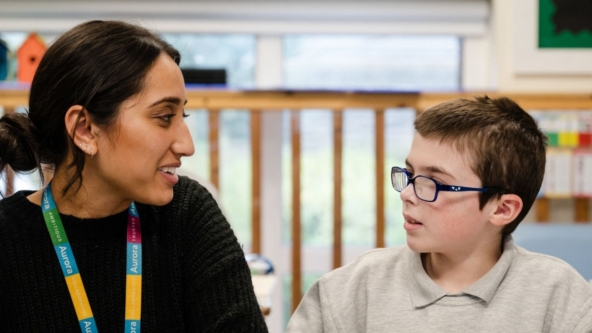The conversations I have with my children are invariably the most interesting.
A few evenings ago, I asked them what kind of company they wanted to work for. While their three answers were all slightly different, they all stemmed from the same logic. They all want to work for ‘good’ companies.
When I asked them how they’d know whether a company was good or not, they looked at me slightly oddly. “We’ll just know” was their collective response. They’re so used to living in a transparent world that the idea of a company being able to hide its true personality from the world didn’t even cross their minds.
The notion of a business having a personality, however, is an interesting one. First, because most companies don’t. They’re so afraid to stand out that they all merge into the same sea of forgettable grey. Secondly, because if companies really did have personalities, you’d quickly conclude that most of them wouldn’t have very many friends.
That’s because most companies are so myopically focused on the numbers (typically their profits) that they forget about the people they’re actually there to serve (their employees and their customers). And this obsession with the financials breeds almost sociopathic behaviour, especially in complex industries where the information mismatch means that customers have less power.
We do things differently at Octopus.
One of these differences is our commitment to remaining a private company. We believe that this makes it far easier to consider the interests of all our stakeholders every time we make a decision.
We spent years trying to find the right framework to help guide us on this part of our journey. We researched the Quaker companies like Rowntree, Guinness and Cadbury to understand all the remarkable things they’d done to change the role of business in society. And we looked closer to home at some of the industry bodies that measure impact.
Ultimately, however, we decided the right framework for us was the B Corp framework.
Becoming a B Corp, which we did in 2021, has been the single most important decision we’ve ever made as a business.
For those readers not familiar with B Corp, think of it a bit like a Fairtrade coffee stamp but for companies. It’s a group of like-minded companies determined to redefine capitalism as a force for good.
In the five years since we started the process, my own opinion on B Corp accreditation has changed. At the beginning of our journey, we saw accreditation as being a bit like a rubber stamp of approval. It was our way of demonstrating to all our stakeholders that we put them first.
But B Corp accreditation has been far more impactful than that. It has changed the way we run our businesses. The interests of our employees, our customers, our communities, and the environment are now considered alongside our shareholders every time we make a decision.
And in a world where buzzwords surrounding sustainability and ESG have reached the point of saturation, B Corp stands out because the principle behind putting your wider group of stakeholders first makes sense.
Beyond the badge, B Corp is all about progress.
It’s a framework that helps companies understand where and how they can build more responsible businesses. It gives management teams a tool to show that they’re delivering on their commitment to put their broader set of stakeholders first. And the proof really is in the pudding. It’s all there for the world to see, in your transparency report on the B Corp website.
And while the universe of accredited B Corp companies is still relatively small (only around 8,000 companies around the world have met the required standard), it allows companies to measure their progress over time. So whether you’re at the start of your journey (and wrestling with how to balance the interests of your wider stakeholders with your shareholders) or right at the top of the pile (Patagonia is one of the highest-scoring B Corp businesses in the world), B Corp provides you with a framework and a language to communicate where you are today, where you want to be in the future as well as how you’re going to get there.
As my children pointed out, we live in a hyper-connected, transparent world. The walls that companies have built around themselves are being ripped down. Becoming a B Corp just accelerates that process. It gives those who believe in a better future the opportunity to set out their stall and explain exactly how they’re ‘good’.
Simon


